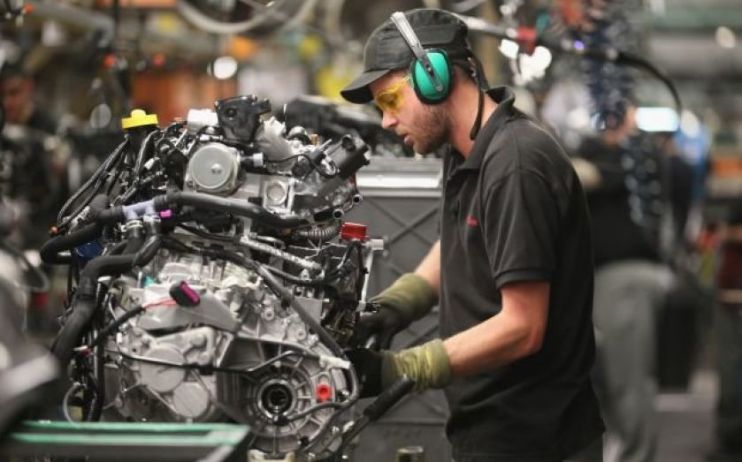Eurozone relapses as manufacturing downturn deepens

Economic woes have deepened in the Eurozone as the manufacturing downturn hit a three-month low for July, according to a closely-followed measure of the industry’s health.
Manufacturing output relapsed to fall to a score of 51.5 this month after two months of growth, IHS Markit’s Flash Eurozone Purchasing Managers’ Index (PMI) found today.
Read more: UK manufacturing records worst month in six years
That compares to June’s 52.2 score. While anything above 50 signals growth, the drop was the worst month since April and one of the weakest PMI readings in six years.
“The manufacturing sector has become an increasing cause for concern,” Chris Williamson, chief business economist at IHS Markit, said.
“Geopolitical worries, Brexit, growing trade frictions and the deteriorating performance of the auto sector in particular has pushed manufacturing into a deeper downturn.”
Germany was one of the Eurozone’s worst performers, seeing manufacturing output crash to a four-month low of 51.4 due largely to a steep fall in export orders – the sharpest drop since April.
The biggest factors included lower demand from China and weak demand for new cars hitting the auto sector.
he main drag was from manufacturing order books, which fell at the fastest rate since April amid reports of lower export sales (in particular to China) and weakness in the automotive sector. July’s decrease in factory export orders was in fact the sharpest seen in over a decade. With services firms also reporting reduced inflows of new orders from abroad, total new export business was down for an eleventh straight month in July.
“Solid growth in the service sector means that the German economy is just about keeping its head above water for now, but even here there are signs of increased worries among companies as optimism hit a three-and-a-half year low,” IHS Markit’s principal economist, Phil Smith, said.
Howard Archer, chief economic adviser to the EY Item Club, warned that worse could be to come.
“Forward looking indicators do not bode well,” he said. “Overall new business at five-month low and near stagnation. Manufacturing #export orders lowest since Nov 2011. Overall confidence lowest since Oct 2014.”
The euro slipped 0.2 per cent against the dollar to 1.114 after the economic figures.
Read more: Will the Bank of England cut or raise interest rates in 2019?
IHS Markit warned that the figures push the case for the European Central Bank to slash interest rates to help boost the Eurozone’s struggling economy.
“With growth slowing, job creation fading and price pressures having fallen markedly compared to earlier in the year, the survey will give added impetus to calls for more aggressive stimulus from the ECB,” Williamson said.
Main image credit: Getty